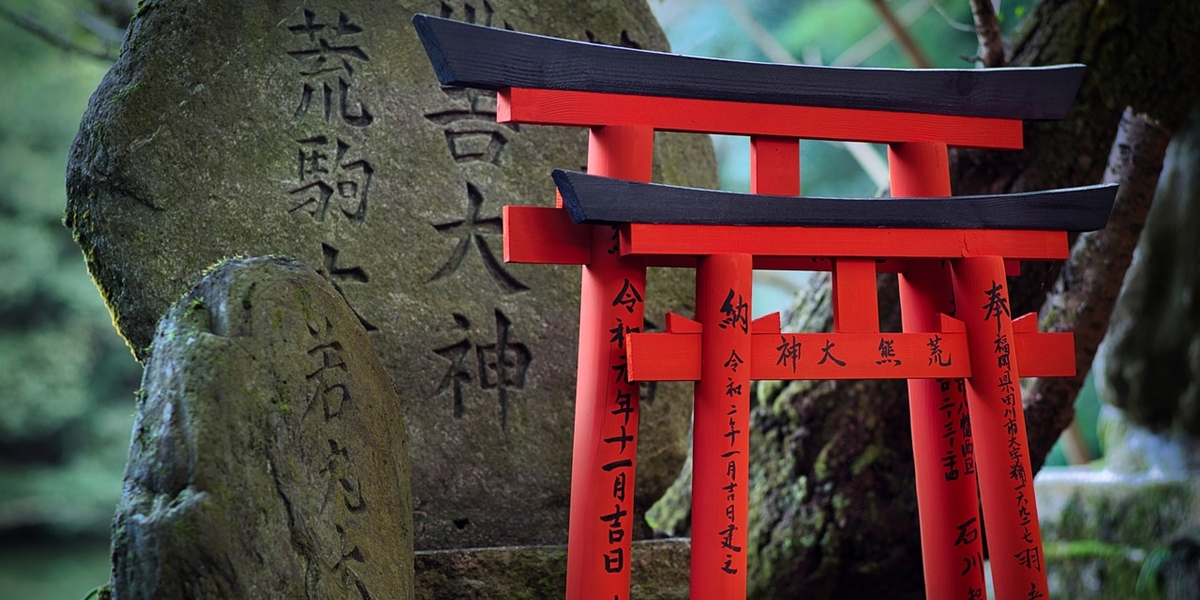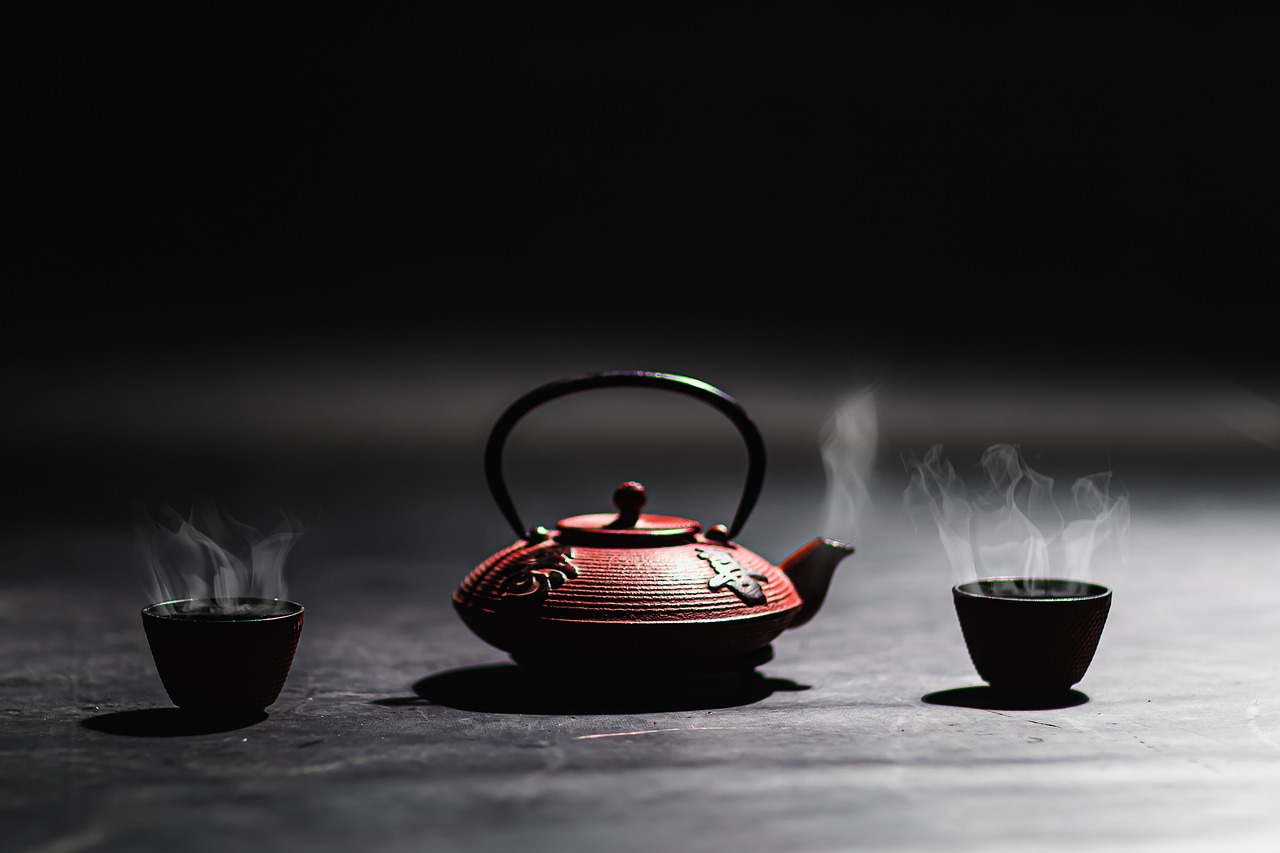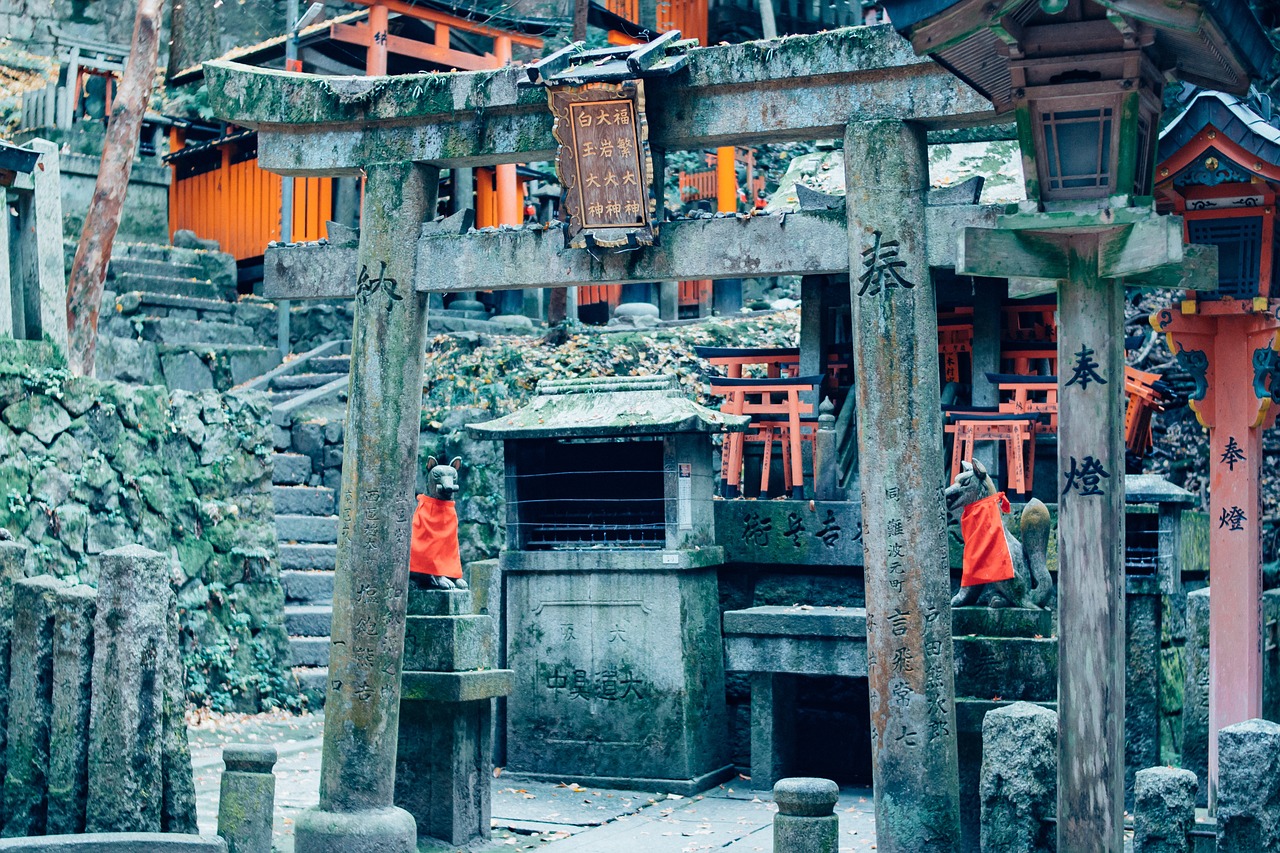A Series of Exciting and Must-Watch Samurai Films!
With its deep portrayal of honor codes and captivating battles, samurai films are definitely suitable for action film enthusiasts. Scenes filled with tension offer a unique entertainment sensation.

Kapanlagi.com - In Japanese culture, proverbs or "kotowaza" play an important role in giving advice, reinforcing values, and inspiring. And this article will discuss the meaning of Japanese proverbs.
In addition, Kapanlagi will also present a complete list of popular proverbs that are often used in everyday life. Each proverb has a deep meaning and is relevant to human experience.
Let's find out how Japanese proverbs have become an integral part of society's life. Just check it out, KLovers.

Illustration (credit: pixabay.com)
Japanese proverbs, known as "kotowaza" or "kanyouku", are short expressions that contain advice or wisdom obtained from life experiences or cultural traditions.
Proverbs often have deep meanings and can serve as guidance or inspiration in everyday life. Proverbs can be single phrases or words arranged in a unique way in the Japanese language.
These Japanese proverbs often depict traditional values or morals in Japanese culture. Proverbs themselves are indeed very important in Japanese culture.
They are an integral part of the rich cultural heritage of Japan that has been passed down from generation to generation. Proverbs are not only memorized but also applied in everyday life.
Japanese proverbs provide insights into the perspectives and values cherished in Japanese society, as well as help strengthen their cultural identity.

Illustration (credit: pixabay.com)
In addition to understanding the meaning of Japanese proverbs, KLovers can also learn a list of popular proverbs in society. Here are some popular Japanese proverbs along with their meanings in everyday life:
1. "Nana korobi ya oki"
Meaning: Fall seven times, stand up eight.
Significance: No matter how many times we fail or face difficulties, what matters is the courage to rise again and continue the struggle.
2. "Saru mo ki kara ochiru"
Meaning: Even monkeys fall from trees.
Significance: Nothing is perfect. This proverb teaches about vigilance and awareness that everyone can make mistakes or experience failures.
3. "Hana yori dango"
Meaning: Dumplings are better than flowers.
Significance: Prioritizing practical things or basic needs over aesthetic or luxurious things.
4. "Koketsu ni irazunba koji wo ezu"
Meaning: If you don't enter the tiger's den, you won't catch its cub.
Significance: To achieve success or obtain something valuable, risk and sacrifice are often required.
5. "Narau yori narero"
Meaning: It's better to get used to it than to learn.
Significance: Practice and direct experience are often more valuable than mere theory or knowledge.
6. "Ame futte ji katamaru"
Meaning: After the rain, the ground becomes firmer.
Significance: Difficulties or trials can make a person stronger or grow.
7. "Deru kui wa utareru"
Meaning: The nail that sticks out will be hammered down.
Significance: People who stand out or are different often become targets of criticism or obstacles, but this can also be a strength that sets them apart from others.
8. "Isseki ni chou"
Meaning: One stone, two birds.
Significance: Taking one action that produces two beneficial results.
9. "Fukusui bon ni kaerazu"
Meaning: Spilled water will not return to its container.
Significance: What has happened cannot be changed, so it is better to focus on the future rather than regret the past.
10. "Tsuru wa sennen, kame wa man'nen"
Meaning: The crane lives for a thousand years, the turtle lives for ten thousand years.
Significance: Depicting the hope for long life, health, and happiness.
11. "Akuin akka"
Meaning: The consequence of bad deeds is a bad outcome.
Significance: Bad actions will result in bad consequences.
12. "Warau kado ni wa fuku kitaru"
Meaning: Fortune comes to those who smile.
Significance: Positive thinking and optimism will bring luck and happiness.
13. "Mono wa tameshi"
Meaning: Trying proves the value of something.
Significance: It is important to try or experience something for oneself before judging or determining the value of something.
14. "Happou bijin"
Meaning: Beautiful from all angles.
Significance: A person who is good at speaking or adapting to various situations but lacks consistent principles.
15. "Uma no mimi ni nenbutsu"
Meaning: Mantras in a horse's ear.
Significance: Giving advice or warning to someone who refuses to listen or accept input.
16. "Kaeru no ko wa kaeru"
Meaning: A frog's child is a frog.
Significance: A person's nature or characteristics often resemble those of their parents or family.
17. "Saru mo ki kara ochiru"
Meaning: Even monkeys fall from trees.
Significance: Nothing is perfect. This proverb teaches about vigilance and awareness that everyone can make mistakes or experience failures.
18. "Bouzu nikukerya kesa made nikui"
Meaning: If you hate a monk, you will even hate his robe.
Significance: If someone already hates someone or something, they tend to hate everything related to it.
19. "Tade kuu mushi mo sukizuki"
Meaning: Even insects that eat grass have preferences.
Significance: Everyone has different preferences or tendencies.
20. "Nana korobi ya oki"
Meaning: Fall seven times, stand up eight.
Significance: No matter how many times we fail or face difficulties, what matters is the courage to rise again and continue the struggle.
21. "Hana yori dango"
Meaning: Dumplings are better than flowers.
Significance: Prioritizing practical things or basic needs over aesthetic or luxurious things.
22. "Fukusui bon ni kaerazu"
Meaning: Spilled water will not return to its container.
Significance: What has happened cannot be changed, so it is better to focus on the future rather than regret the past.
23. "Koketsu ni irazunba koji wo ezu"
Meaning: If you don't enter the tiger's den, you won't catch its cub.
Significance: To achieve success or obtain something valuable, risk and sacrifice are often required.
24. "Narau yori narero"
Meaning: It's better to get used to it than to learn.
Significance: Practice and direct experience are often more valuable than mere theory or knowledge.
25. "Ame futte ji katamaru"
Meaning: After the rain, the ground becomes firmer.
Significance: Difficulties or trials can make a person stronger or grow.
26. "Deru kui wa utareru"
Meaning: The nail that sticks out will be hammered down.
Significance: People who stand out or are different often become targets of criticism or obstacles, but this can also be a strength that sets them apart from others.
27. "Isseki ni chou"
Meaning: One stone, two birds.
Significance: Taking one action that produces two beneficial results.
28. "Fukusui bon ni kaerazu"
Meaning: Spilled water will not return to its container.
Significance: What has happened cannot be changed, so it is better to focus on the future rather than regret the past.
29. "Uma no mimi ni nenbutsu"
Meaning: Mantras in a horse's ear.
Significance: Giving advice or warning to someone who refuses to listen or accept input.
30. "Kaeru no ko wa kaeru"
Meaning: A frog's child is a frog.
Significance: A person's nature or characteristics often resemble those of their parents or family.
That is the understanding of Japanese proverbs that KLovers can know, complete with popular proverbs in society. Through Japanese proverbs, we can experience the wisdom that is inherited and enrich our life experiences.
(kpl/dhm)
Cobain For You Page (FYP) Yang kamu suka ada di sini,
lihat isinya
With its deep portrayal of honor codes and captivating battles, samurai films are definitely suitable for action film enthusiasts. Scenes filled with tension offer a unique entertainment sensation.
In the anime ONE PIECE, the Straw Hat Crew is a group of pirates led by Monkey D. Luffy. Who are they? Let's check out the list of Straw Hat Crew members in the anime ONE PIECE who are strong and have epic characters in the storyline.
With thrilling action scenes and a plot full of intrigue, the film FROM PARIS WITH LOVE promises an exciting movie-watching experience. Here is the complete synopsis of the film FROM PARIS WITH LOVE along with the cast list.
Prepare to dive into a world filled with technological wonders and unforgettable epic battles through the following latest technology-themed anime recommendations.
In this article, Kapanlagi will provide a synopsis of the film TRAINING DAY filled with conflicts, as well as a complete list of the cast with explanations of their characters.
So, what is the meaning of dreaming about killing snakes in Islam? Instead of being curious, to find out the meaning of dreaming about killing snakes in Islam, just read the following review:
Curious about the explanation of the meaning of dreams of being pregnant according to psychology? To find out, just read the following explanations.
Thai dramas often explore unique themes, and one of them is Thai dramas about the following games.
Curious about the explanation of the meaning of dreaming of flying in an airplane according to psychology? To find out, just read the following review:
Many believe that there is a meaning behind dreaming of being chased by a crazy person according to psychology. Yes, many people believe that dreaming of being chased by a crazy person holds meanings related to someone's psychological or mental condition.
Chinese dramas often present heartwarming romantic stories, but some of them stand out with a sad ending and an epic story. Like the following Chinese dramas with romantic sad endings.
Korean dramas about stepmothers have become one of the themes that attract viewers' attention with complex and emotional stories. Here are Korean dramas about good stepmothers with epic and touching stories.